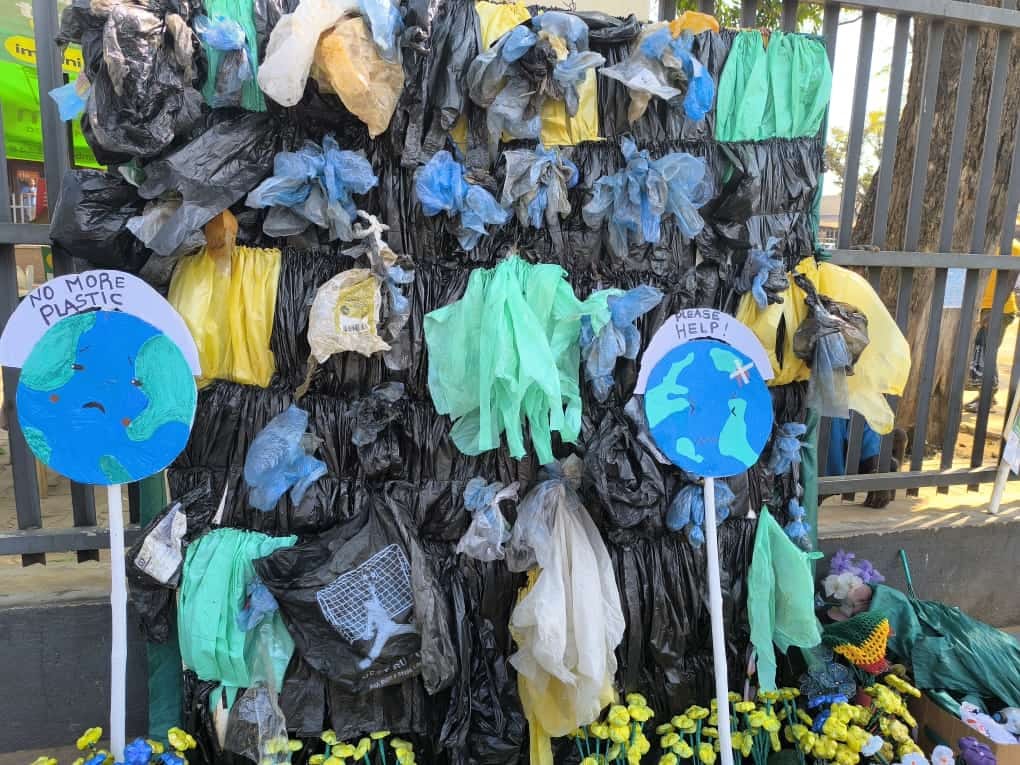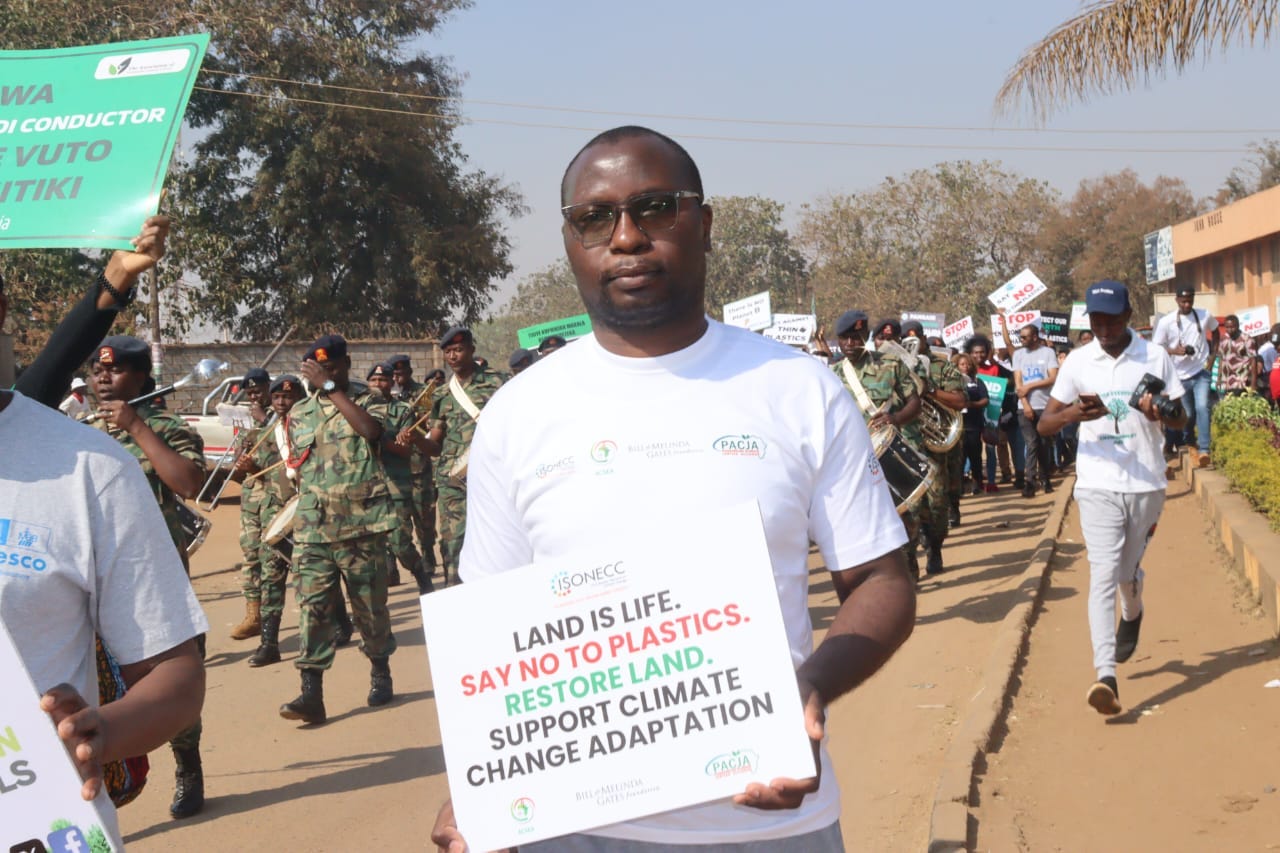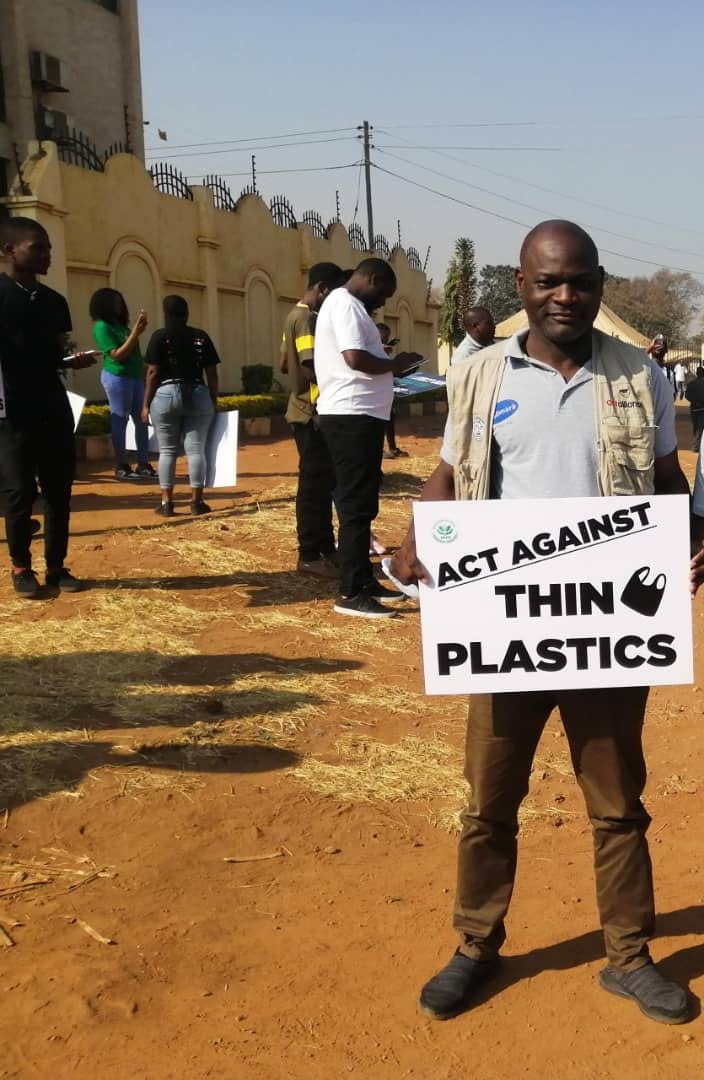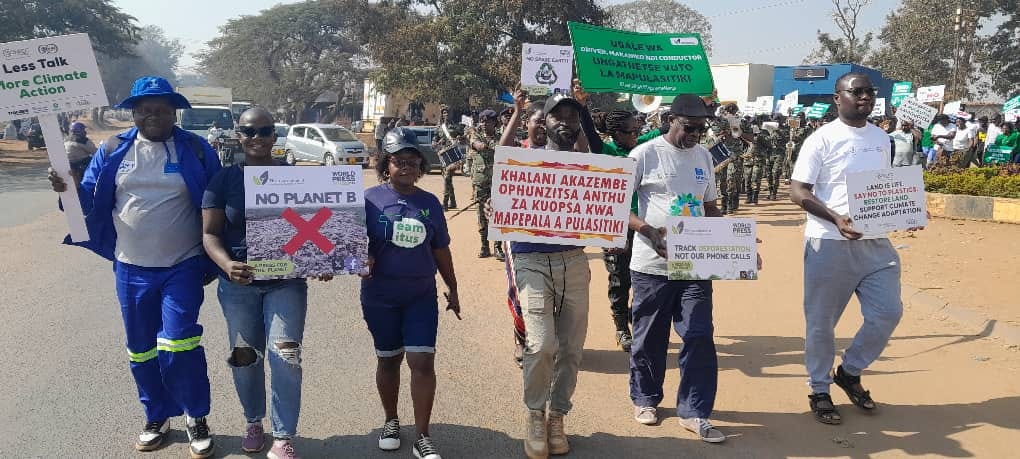Malawi's Battle Against Thin Plastics Intensifies
As the nation awaits the outcome of legal proceedings and policy deliberations, one thing is clear: the future of Malawi's environment hangs in the balance, and the world is watching.
LILONGWE, Malawi— In an unprecedented alliance, Malawian farmers, high-profile lawyers, journalists, and environmental activists have joined forces to combat the proliferation of thin plastics, challenging manufacturers and pushing for stringent regulations in a country grappling with severe environmental degradation, write Winston Mwale and Tionge Hara.
As the sun rises over Mzimba District in northern Malawi, Mercy Phiri, a 43-year-old farmer, surveys her land with a mixture of concern and determination.
The scattered remnants of thin plastic bags amid her crops tell a story of environmental neglect that threatens her livelihood and the future of agriculture in this southeastern African nation.
"We find it hard to get more yields because of the plastics," Phiri told AfricaBrief, her weathered hands gesturing to the littered field.
"When clearing our lands, we find too many thin plastics that are still in good shape. They harm the land and are very difficult to remove."
Phiri's experience is not unique. Across Malawi, farmers are increasingly vocal about the impact of thin plastics on their agricultural practices.
The non-biodegradable materials, often used for packaging and shopping bags, persist in the soil for years, impeding crop growth and contaminating the land.
"As environmental groups push for a ban on these harmful materials, I would like to share my firsthand experiences and the detrimental effects I have been experiencing on my crops and livelihood," Phiri added, her voice gaining strength as she spoke.
"They affect us highly."
The agricultural sector, which employs nearly 80% of Malawi's workforce, finds itself at the forefront of this environmental crisis.
Farmers argue that the proliferation of thin plastics not only affects crop yields but also poses risks to livestock that may inadvertently consume the materials.
Legal Heavyweights Enter the Fray
In an unexpected turn of events, the farmers' plight has attracted support from the highest echelons of Malawi's legal community.
Two former attorneys general, Kalekeni Kaphale and Chikosa Silungwe, have stepped into the arena, offering their services pro bono to bolster the state's legal team in its fight against thin plastics.
"We made this decision as citizens of Malawi that care for our environment," Kaphale stated, his words carrying the weight of his former office.
"We have to live in a better environment and leave an environment that is good for our children and future generations."
The involvement of these legal heavyweights comes at a critical juncture. Eleven companies recently obtained an injunction, halting the Ministry of Natural Resources and Climate Change from implementing a ban on thin plastics.
This legal maneuver has reignited the debate over environmental protection versus economic interests.
Kaphale, known for his sharp legal acumen, didn't mince words when addressing the situation.
"We are also trying to mobilize other interested parties from other universities to join us, and the door is also open to non-governmental organizations that focus on the environment," he said, outlining a strategy to build a formidable legal coalition.
The current Attorney General, Thabo Chakaka Nyirenda, welcomed the support from his predecessors.
"These are true patriots offering their priceless services for free to save this nation from serious environmental damage the thin plastics may cause," Nyirenda said, his tone reflecting both gratitude and determination.
"I am excited to have their expertise and to help us rescue Malawi."
Activists Mobilize Public Opinion
As the legal battle unfolds in the courtrooms, environmental activists are taking their fight to the streets and communities across Malawi.
The Civil Society Network on Climate Change (CISONECC) recently participated in a solidarity march organised by the Association of Environmental Journalists (AEJ) Lilongwe, the nation's capital, to raise awareness about the dangers of thin plastics.
Julius Ng'oma, National Coordinator for CISONECC, led the march with passionate resolve.
"We wanted to raise awareness to the general population in Lilongwe and across Malawi on the dangers of thin plastics," Ng'oma explained, his voice carrying over the chants of marchers.
The demonstration, which saw participants carrying placards with messages like "Say No to thin plastics" and "Stop environmental harm," was a visual representation of the growing public sentiment against the use of these materials.
Ng'oma outlined the multifaceted threat posed by thin plastics. "These thin plastics take years to degrade in the environment," he said.
"They cause harm to livestock, block drainages leading to flash flooding, and detract from the beauty of our cities."
The march, supported by diverse groups including the Association of Environmental Journalists (AEJ) and even the Malawi Defence Force, underscored the issue's significance across different sectors of society.
Comprehensive Approach Advocated
While public demonstrations and legal battles grab headlines, organizations like the Coordination Union for the Rehabilitation of the Environment (CURE) are advocating for a more comprehensive approach to tackle the plastic predicament.
Charles Mkoka, Executive Director of CURE, emphasized the need for a multi-pronged strategy.
"Thin plastics, often single-use, contribute significantly to pollution in Malawi, clogging water systems, harming wildlife, and degrading our natural landscapes," Mkoka stated, outlining the extent of the problem.
"We need to fight on the legal battles to reinforce and implement existing bans on thin plastics.”
He suggested, highlighting the need for innovation in packaging solutions.
Mkoka said CURE advocates for extensive public education campaigns to inform Malawians about proper waste disposal and the benefits of using alternatives to thin plastics.
"Local communities should be actively involved in clean-up efforts and initiatives to reduce plastic use," Mkoka emphasized, underlining the importance of grassroots participation.
The organization calls for improvements in Malawi's recycling capabilities to manage plastics already in circulation.
Manufacturers' Perspective and Economic Concerns
While environmentalists and farmers present a united front, plastic manufacturers argue that an outright ban threatens jobs and economic stability.
The 11 companies that secured the recent injunction are seeking to challenge the constitutionality of the Environment Management (Plastics) Regulations of 2015, which form the basis for the proposed ban.
Government's Balancing Act
Caught between environmental imperatives and economic concerns, the Malawian government finds itself in a delicate position.
The Ministry of Natural Resources and Climate Change, the primary defendant in the ongoing legal case, maintains that the ban on thin plastics is crucial for the country's environmental health.
The Road Ahead
As the legal battle continues and public awareness grows, the outcome of Malawi's plastic predicament remains uncertain.
Environmental activists are calling for immediate action, while manufacturers urge a more measured approach.
Ng'oma of CISONECC delivered a clear call to action: "Let's say no to thin plastics. Those using them should stop, and those intending to buy them should not."
His words echo the sentiment of a growing movement that sees the ban on thin plastics as a crucial step towards environmental preservation.
Farmer Phiri, whose daily struggles sparked this national conversation, remains hopeful.
"We need solutions that work for everyone," she said, looking out over her fields. "
But we cannot wait too long. Our land, our livelihoods, and our future depend on it."
The involvement of legal luminaries like Kaphale and Silungwe has undoubtedly elevated the profile of this environmental cause.
Their pro bono commitment signals the gravity of the issue and may influence public opinion and legal outcomes.
As Malawi grapples with this complex issue, the world watches closely.
The nation's approach to balancing environmental protection with economic interests could serve as a model for other developing countries facing similar challenges.
The battle against thin plastics in Malawi is more than an environmental campaign; it's a test of the country's ability to navigate competing interests and emerge with policies that ensure a sustainable future.
With farmers, top lawyers, journalists, and passionate activists leading the charge, Malawi stands at a crossroads, poised to make decisions that will shape its environmental and economic landscape for generations to come.
In the fields of Mzimba, as farmer Phiri continues her daily work, the scattered plastic bags serve as a constant reminder of the challenges ahead.
But with each passing day, as more voices join the chorus calling for change, there's growing hope that Malawi will find a way to preserve its natural beauty and agricultural heritage while fostering sustainable economic growth.
The plastic predicament in Malawi is far from resolved, but the unprecedented alliance of farmers, legal experts, and environmental activists has brought new energy and urgency to the cause.
As the nation awaits the outcome of legal proceedings and policy deliberations, one thing is clear: the future of Malawi's environment hangs in the balance, and the world is watching.








